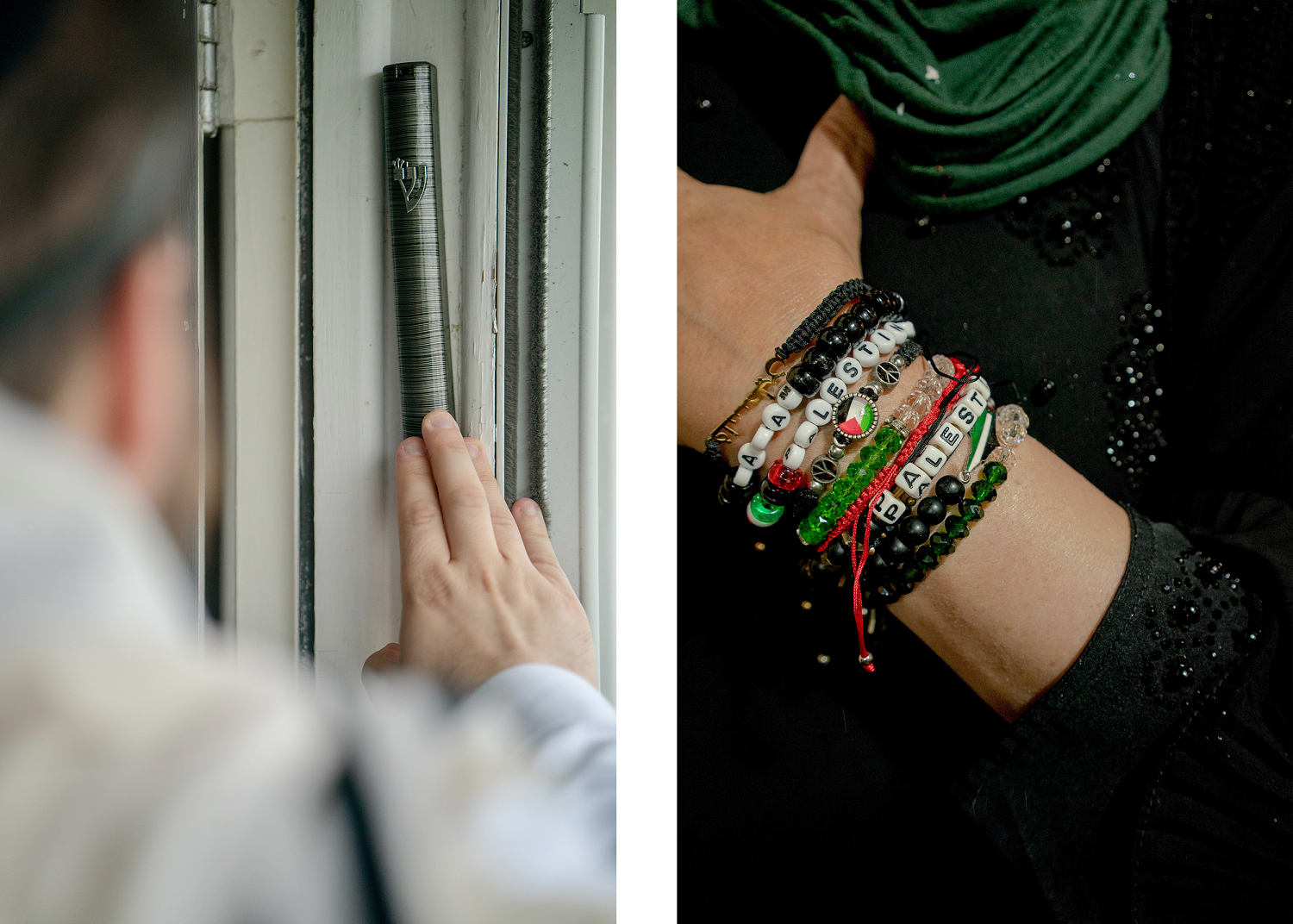[ad_1]

But in one commercial district in Passaic, home to kosher eateries and Orthodox-operated businesses, members of the local Jewish community acknowledged a “silent tension” in Passaic County.
Never before had Shoshana Trepper, 25, thought about her safety, but as she and her friends follow what’s happening in Israel and Gaza, she said she makes the point to check that her doors are always locked at home. Her friends tell her they’re asking their husbands to stay home at night and do their religious studies online, rather than walking to local facilities.
“There’s a lot of propaganda against Israel,” said Trepper, who works with children, adding that she feels most comfortable within her Orthodox community.
While she said she has not been subject to antisemitism, there remains extreme caution among her peers.
“You don’t know who’s on what side,” she said.
Opposing views
Clifton is ranked among the most diverse small cities in the country, according to WalletHub, a personal finance site, with Spanish, Arabic, Polish and Indian dialects widely spoken. In 2015, a hijab-wearing Muslim student was voted “best dressed” by her Clifton High School senior class.
And yet, geopolitical dynamics have threatened to undermine the tolerance.
Two Palestinian American members of the Board of Education endured backlash at a 2021 board meeting when they voiced concern for Palestinian rights, prompting criticism from Jewish groups, including national organizations like the Simon Wiesenthal Center and StandWithUS, for “antisemitic rhetoric.” A complaint filed with the state’s School Ethics Commission concerned about a negative impact “on the educational welfare of the District’s Jewish students” was later dismissed, and a state appeals court last month affirmed the dismissal.
Last year, a woman was arrested and charged with bias crimes after prosecutors say she harassed two young Muslim sisters wearing hijabs at a Clifton nail salon and “told them to go back to their country.”
This year, tensions amplified. A Clifton man was arrested in February for attempting to firebomb a synagogue in neighboring Bloomfield, according to federal prosecutors. In June, seven swastikas were found spray-painted in a Clifton park between two Jewish schools.
You don’t know who’s on what side.”
— Shoshana Trepper of passaic
That incident led the City Council to consider adopting a formal definition of antisemitism as conceived by the International Holocaust Remembrance Alliance. Though the interpretation does not specifically mention Israel or Zionism, some civil rights groups, including the American Civil Liberties Union and the Council on American-Islamic Relations, say it has been used to wrongly equate those who are critical of Israel or the Zionist movement with being prejudiced against Jewish people.
Hundreds of people packed a council meeting in July, mostly to object.
“We as a community are absolutely not for antisemitism,” a Palestinian American imam told the council. “But we don’t want this definition of antisemitism to stop us from speaking out against what we clearly see as oppression.”
The council did not advance the resolution. Even now, months later, the meeting rankles some members of the Jewish community who had hoped the city would choose to take a formal stance against antisemitism. One 36-year-old Jewish resident who describes herself as “fairly secular” said that while she didn’t feel physically unsafe at the meeting, the presence of those appearing in opposition to what the state of Israel represents — a “safe haven” — was distressing. “I didn’t want to know this about my neighbors,” she said.
[ad_2]
Source link
